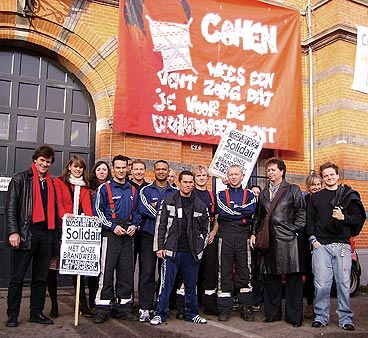With some two to three million unemployed already in the UK there were always going to be fewer people taking their stagnight to Amsterdam, but the ongoing war on fun cannot help. For years now the Amsterdam city council has tried to attract a higher class of tourists, wanting to present the city as one of culture and musea rather than of hookers and coffeeshops. So far this has met with little succes, but the city has managed to alienate many of the traditional visitors. What Amsterdam has been aiming at is the high value tourist, who wants to stay in a nice hotel and eat in expensive restaurants after a day of visiting the Rijksmuseum or van Gogh museum and browsing through quaint little antique or fashion shops. To make room for those tourists the city council has been on a crusade against the traditional attractions of Amsterdam: the Red Light district, the coffeeshops and the whole infrastructure of backpacker hotels and kebab shops.
To me this strategy never made sense other than as an expression of misplaced snobbery, as Amsterdam, nice town that is, really has little to offer this kind of tourist cannot find anywhere else and better. You want culture, high end shopping and fine dining? Why go to Amsterdam if you can go to Paris, or London, or Barcelona, or Vienna or Moscow even, or…
Sure, there are plenty of other party towns in Europe as well; Prague or Riga for example, which also attract a lot of British tourists out on a stag do or hen weekend. But Amsterdam is unique in that you could party safely here: do a bit of harmless experimenting with drugs or visit a live sexshow without fear of the police. Especially the coffeeshop gave Amsterdam its reputation as a city where everything goes. For all the foreign politicians who railed about it there were hundred of young people who wanted to come over. But no more. Tourism is flagging, the Brits are staying home or moving on to cities that do appreciate them. In hindsight, putting mayor Job Cohen on UK television warning boozing Brits to stay away might not have been the smartest idea…
